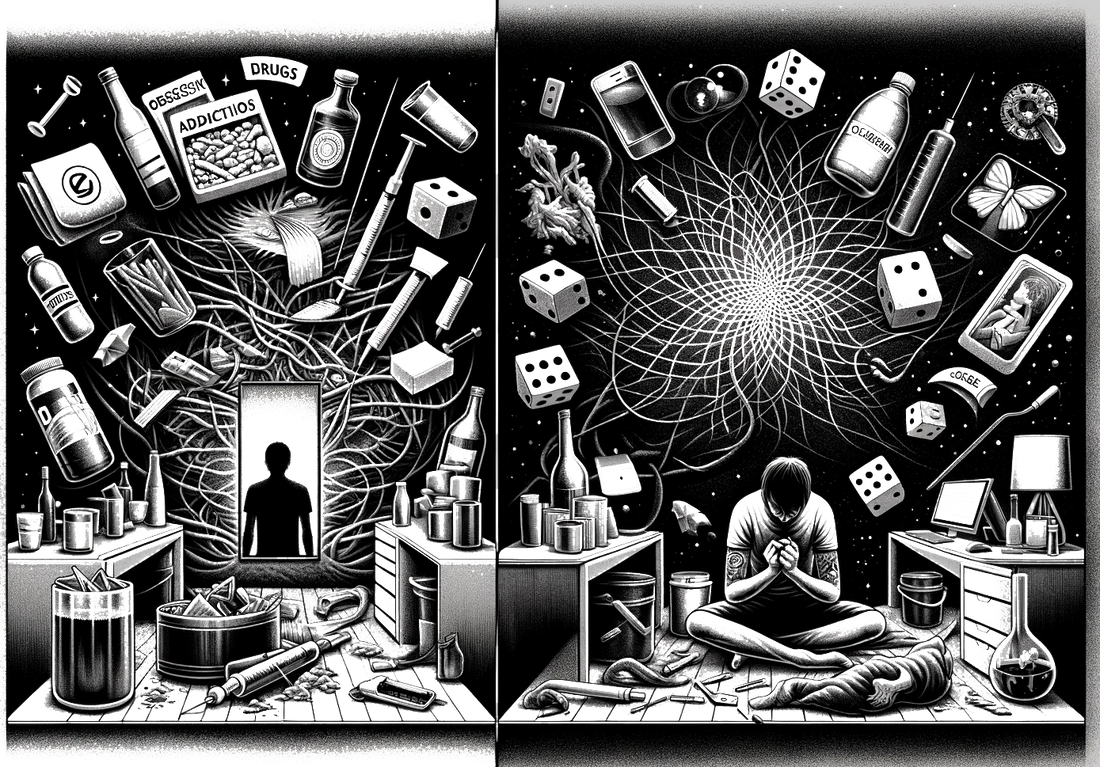Addictions vary widely and generally fall into two primary categories. The first, known as "dangerous addictions," includes substances like drugs and alcohol. These addictions pose significant risks to physical health and often lead to harmful behavior patterns, characterized by their immediate and profound impact on both the individual's well-being and their social interactions. In contrast, the second category, "subtle addictions," comprises behaviors that might appear harmless initially but can gradually undermine happiness and overall quality of life. Examples include obsessive cleaning habits, workaholism, and self-obsession. While these behaviors might not pose immediate dangers, they serve as distractions that detract from genuine fulfillment and can exacerbate over time, potentially leading to more destructive forms of addiction if not addressed.
All addictions can trace their origins to underlying issues such as anxiety and mental distress. A prime example is the affliction of obsessive thoughts, which is exceedingly distressing and does not necessarily depend on the presence of a secondary addictive behavior. It is characterized by persistent, intrusive thoughts that bring about intense discomfort and anguish. Often, these primary obsessive patterns are accompanied by additional addictive behaviors, trapping individuals in a relentless cycle of rumination, unable to escape the tenacious hold of their own thoughts. The compulsion towards obsessive thinking can precipitate profound emotional turmoil, which can have a detrimental impact on numerous facets of life, including interpersonal relationships, professional performance, and overall mental and physical health. Recognizing the distinction between dangerous and subtle addictions is crucial for understanding the complex nature of addiction and developing effective intervention and recovery strategies.
I have compiled a list of addiction types I have observed throughout my recovery, though there are likely many more I have not considered:
- Adrenaline addiction
- Alcohol addiction
- Amphetamine addiction
- Anabolic steroid addiction
- Anger addiction
- Bullying
- Caffeine addiction
- Cannabis addiction
- Cleaning addiction
- Cocaine addiction
- Codependency (relationship to someone else’s addiction)
- Compulsive buying/consumerism
- Compulsive gambling addiction
- Compulsive sexual behavior (sex-related destructive behavior)
- Crime addiction
- Cryptocurrency trading addiction
- Danger sports addiction
- Drama addiction
- Drug addiction
- Eating disorders (related to food addiction)
- Exercise addiction
- Fantasy addiction
- Fanaticism addiction
- Gossip addiction
- Hypochondria
- Infidelity addiction
- Lying addiction
- Methamphetamine addiction
- Negative judging addiction
- Negative thinking addiction
- Complaining addiction
- Nicotine addiction
- Organization addiction
- Overeating addiction
- Painkiller addiction
- Plastic surgery addiction
- Pornography addiction
- Praying or god-worshipping addiction
- Social media addiction
- Speeding addiction
- Stealing addiction
- Sugar addiction (refined sugar)
- Tattooing addiction
- Traveling addiction
- Undereating addiction
- Video game addiction
- Violence addiction
- Watching TV addiction
- Work addiction (workaholism)
